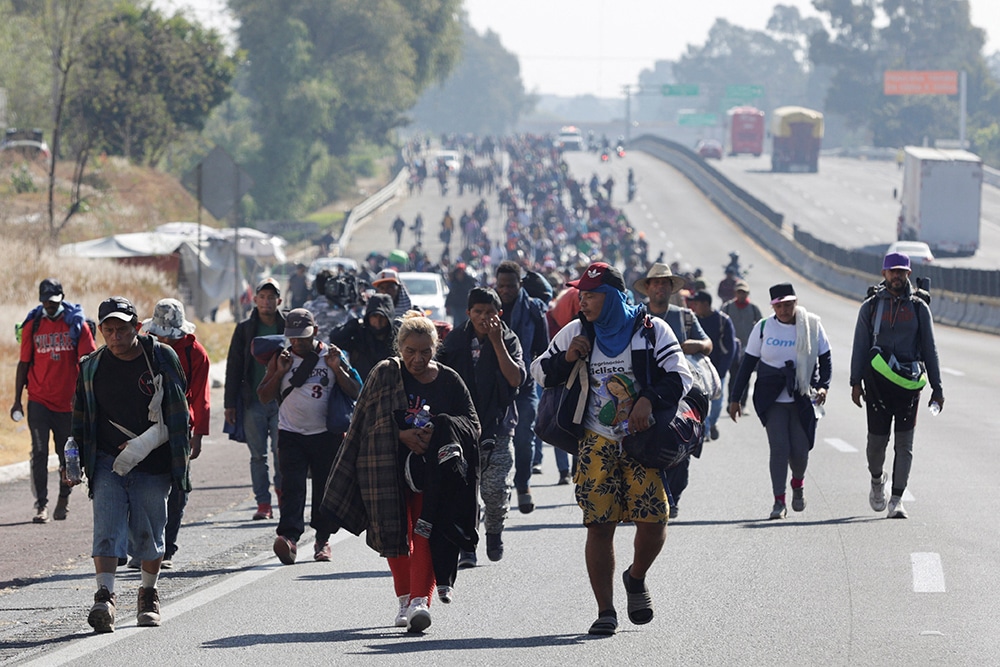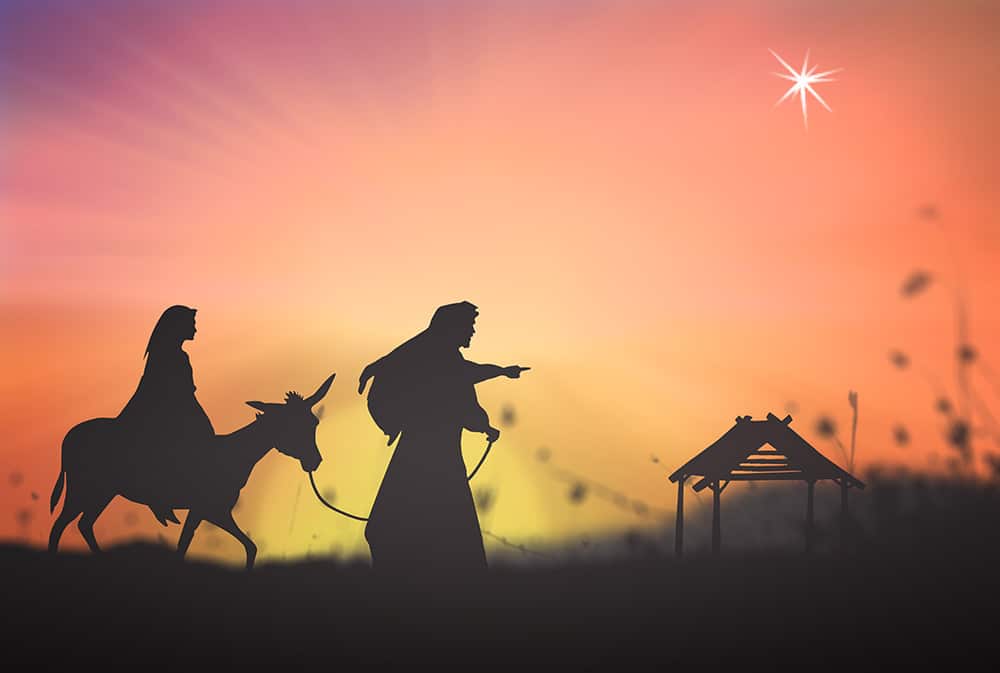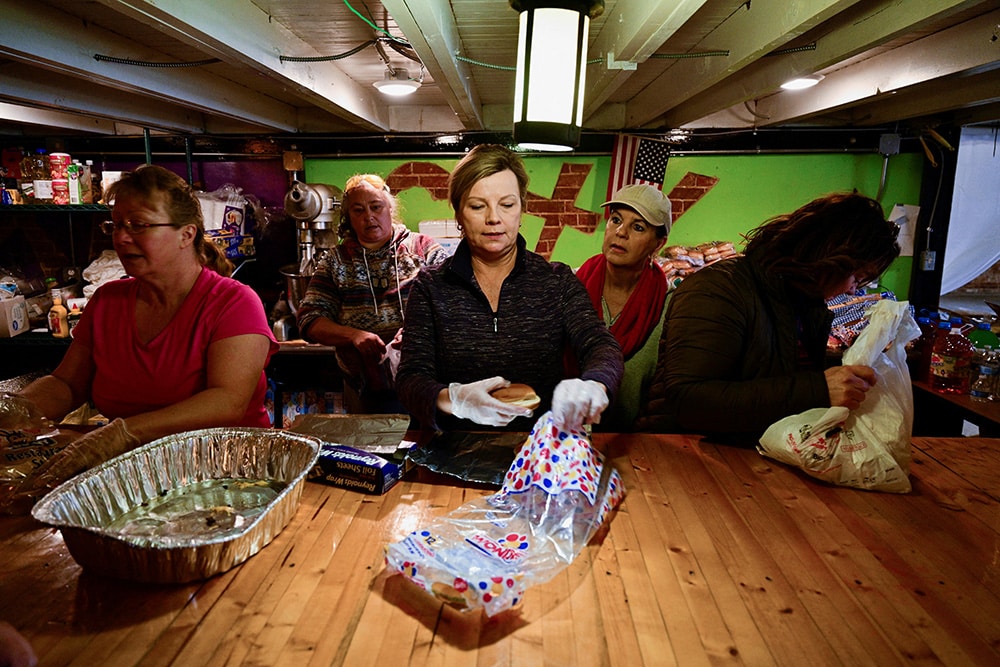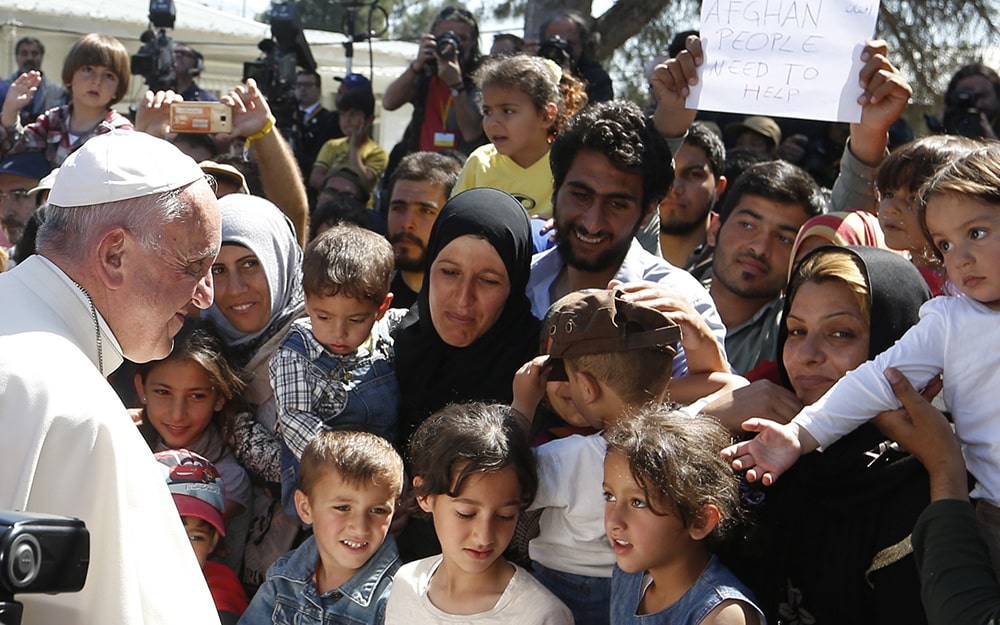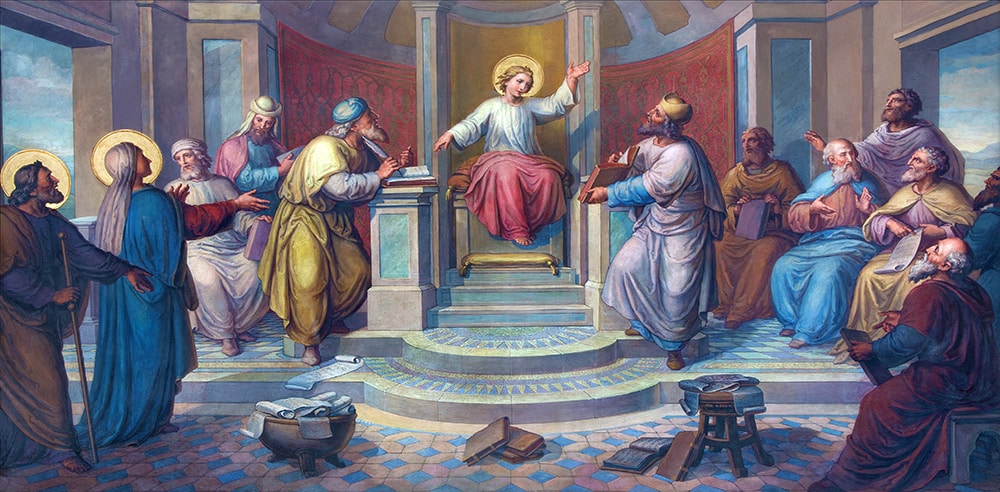Just months after he was elected to the Chair of St. Peter, Pope Francis made his first trip outside of Rome to the tiny Italian island of Lampedusa, located in the middle of the Mediterranean Sea between the southwest tip of Sicily and the African country of Tunisia. Lampedusa is home to just 6,000 people spread out over the island’s seven square miles.
But in 2011, as tens of thousands of people fled the unrest of Arab Spring, that population swelled, as Lampedusa was seeing huge numbers of migrants take shelter on the island after attempting to make the dangerous journey from Northern Africa across the Mediterranean. According to the Vatican, more than 48,000 refugees had landed on the island by August of 2011. Many didn’t make it ashore, as they died seeking a safe and prosperous life that their home country could no longer offer.
“Immigrants dying at sea, in boats which were vehicles of hope and became vehicles of death. That is how the headlines put it,” Pope Francis told the crowd during his homily at Mass on the island on July 8, 2013. “When I first heard of this tragedy a few weeks ago, and realized that it happens all too frequently, it has constantly come back to me like a painful thorn in my heart. So I felt that I had to come here today, to pray and to offer a sign of my closeness, but also to challenge our consciences lest this tragedy be repeated. Please, let it not be repeated!”
For nearly nine years, this plea — to tend to the physical and spiritual needs of migrants and refugees — has been a top priority of Pope Francis, and one he continues to beg the world to pay attention to wherever he goes.
This includes his most recent apostolic journey, to Cyprus and Greece, where he spent a considerable portion of his public schedule meeting with and focusing on the needs of migrants and refugees. On the final full day of his trip, Dec. 5, Pope Francis again preached from the shores of the Mediterranean, this time at a migration reception facility on the Greek island of Lesbos. He said: “The Mediterranean, which for millennia has brought different peoples and distant lands together, is now becoming a grim cemetery without tombstones. This great basin of water, the cradle of so many civilizations, now looks like a mirror of death.”
But for us in the United States, the Mediterranean is so far away, and its tragedies too often go unnoticed. But in early December, just days after Pope Francis warned us of the dangers that face migrants, his message tragically hit closer to home. On Dec. 9, a tractor-trailer carrying more than 100 migrants from Central America crashed in southern Mexico near the border with Guatemala. At least 55 people were killed, according to Mexican officials; 19 of the dead were minors, and the youngest victim was just 3 years old.
This tragedy isn’t an ocean away. It’s here, and as Pope Francis consistently reminds us, each of us has a responsibility. In his message for the 105th World Day of Migrants and Refugees in 2019, he wrote: “It is not only the cause of migrants that is at stake; it is not just about them, but about all of us, and about the present and future of the human family. Through them, the Lord is calling us to conversion, to be set free from exclusivity, indifference and the throw-away culture. Through them, the Lord invites us to embrace fully our Christian life and to contribute, each according to his or her proper vocation, to the building up of a world that is more and more in accord with God’s plan.”
As he arrived at Lampedusa on a Coast Guard ship back in 2013, the BBC reported that fishing boats floated idle near the shore. A banner on one of the boats read, “Pope Francis, only you can save us.”
He’s trying, with all his might.
Will we?
Scott Warden is managing editor of Our Sunday Visitor.

